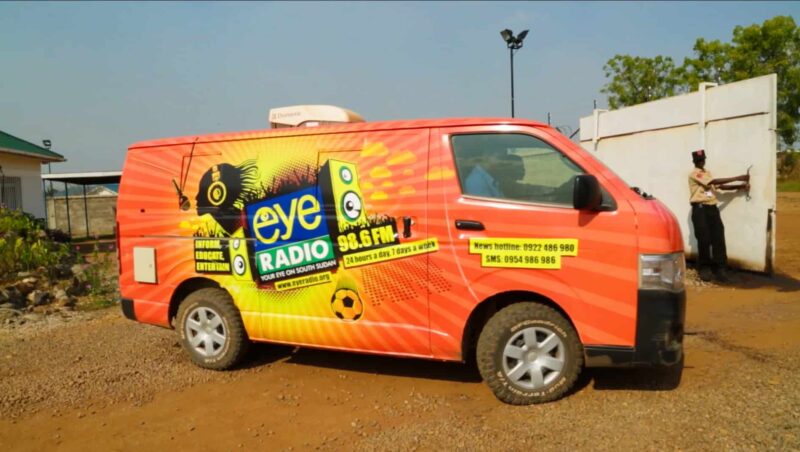Internews’ #InformationSavesLives campaign provides updates from journalists around the world on how they’re coping with coronavirus coverage and maintaining their operations. Learn more and donate to the Rapid Response Fund to help meet the needs of journalists.
Rosemary Wilfred is a journalist at Eye Radio, a local independent media outlet and partner of Internews in Juba, South Sudan. Just recently, COVID-19 cases were confirmed in a crowded civilian protection camp in the nation’s capital.
Aside from having to deal with issues during the COVID-19 pandemic such as lack of access to sources and poor Internet service when working from home, South Sudanese journalists also are experiencing harassment and stigma as they attempt to provide information about the virus to their communities.
Watch a video of Rosemary explaining some of the challenges:
“Some of these military officials have been harassing journalists, despite the fact that the Minister of the Interior has permitted journalists to continue operating during this coronavirus pandemic,” says Rosemary.
“And also, some of my colleagues have been experiencing stigma and discrimination. Family members or the community members say we are the ones going out meeting with so many people and … they believe that we could easily get infected and also infect them at home and the community at large.”
The harassment by officials eased up after journalists were provided with letters verifying that they worked for a media outlet, but other issues remain. Rosemary would like to see journalists provided with personal protective equipment so they can do their jobs safely. She also says they need funding to continue to provide information to the public about preventative measures and the status of the virus in South Sudan.
